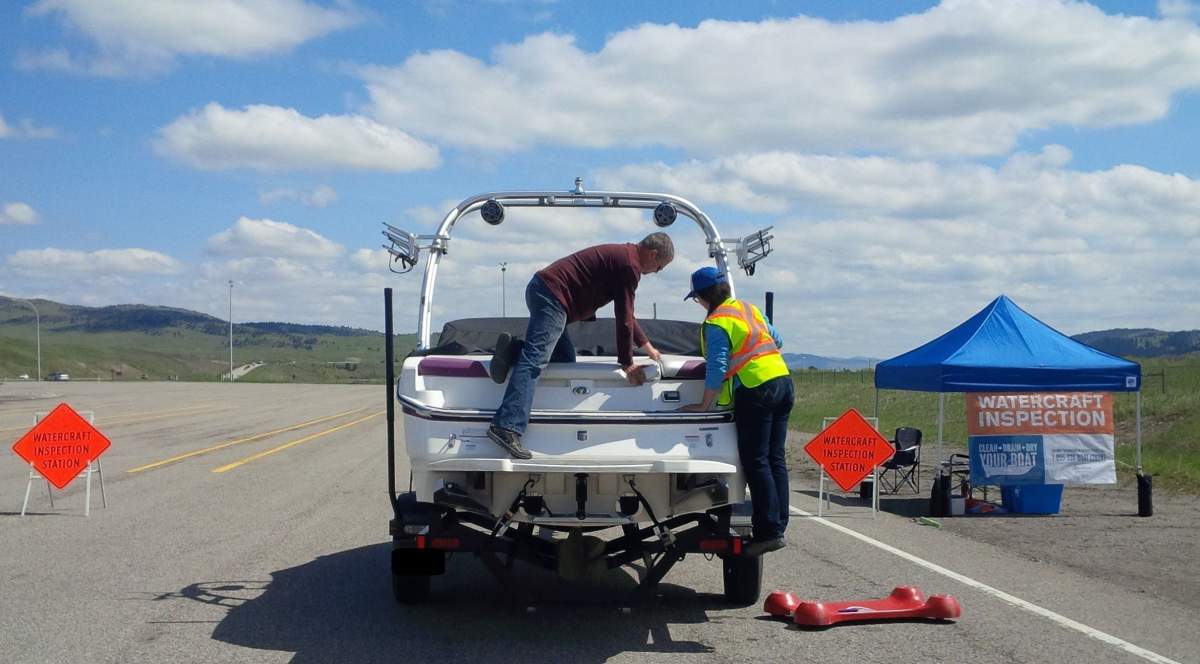The Watercraft Inspections Program set up a station at Wabamun Lake, Alta. on Saturday, looking for any potentially invasive species — particularly zebra and quagga mussels.

Officials say there are currently no invasive mussels in Alberta, B.C. or Saskatchewan, and they want to keep it that way.
“Across the board, they do damage from everything to potentially clogging up intakes on boat motors, to water treatment plants, to dams, to power generation,” said Rob McLeod, operations field coordinator of the Watercraft Inspections Program. “That’s a huge problem with the mussels, as well as the recreational impact on beaches, on boats, on docks and all that.”
Mussels can live up to 30 days outside of water and begin to reproduce once in the water again, which is why officials work thoroughly to ensure all watercraft entering Alberta are clean.
Wabamun Lake is quite shallow and there is very low water flow, said Neil Fleming, director of Wabamun Watershed Management Council, a group of volunteers who help manage and maintain the lake.

Get daily National news
“Anything that goes in the lake literally stays in the lake,” he said.
And while water conditions have been good so far this year, Fleming said that doesn’t eliminate the risk of what could happen over time.
The majority of mussels are coming in from the Great Lakes in Ontario and in other water bodies near Winnipeg and the U.S., which is why inspectors most often set up shop at the eastern and southern borders. Overall, there are five inspection sites throughout the province.
According to the Fisheries Alberta Act, anyone coming into Alberta with watercraft who encounters an open inspection station is required to pull in.” This includes anyone with a kayak, boat or paddleboard, said MacLeod.
The mussels themselves are very small — sometimes similar to a grain of sand, MacLeod said — and therefore can be very tricky to spot.
When the inspections team does find mussels on a watercraft, they use hot water — 50 to 60 Ce — to remove them. The pressure gets them off the boat and the heat kills them.
“We work with the boaters and we want to encourage them to come into our stations,” said MacLeod.
The Inspections Program offers free cleaning services.
All boaters are encouraged to clean, drain and dry their water to help stop the spread of mussels and other invasive species.








Comments